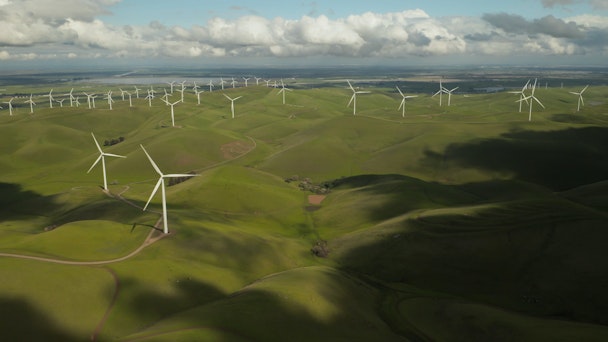Why you’re writing about sustainability wrong and how to fix it
Sustainability used to be an afterthought, the feel-good cherry on top of your marketing. However, with the proliferation of natural disasters and end-of-the-world headlines over recent years, it’s quickly rising up the agenda for everyone. In the corporate world, this is reflected by sustainability increasingly being imbedded in business operations and by companies reporting on their impact across entire value chains. It’s safe to say that sustainability is no longer an afterthought.

Radley Yeldar provides marketers with a more holistic approach to incorporating sustainability into their strategy
While everyone is paying more lip service to the subject, the quality of communications has not followed suit. Sustainability is still communicated by corporates in a way that is ineffective and turning all audiences off, whether it’s customers, suppliers or consumers. Now, in this most critical decade, there is no time for ineffective language.
Most writing in this space sounds the same, and frankly, it’s boring. Businesses shed their unique tone of voice, instead cloaking their sustainability messages in what we like to call ’stock sustainability’. You know it when you see it: it sounds like corporate ‘business speak’, couched with strings of unconvincing vague sentiments like ’we care!’, ’for the future!’ and ’together for change!’. The result is that for many sustainability reports, web pages or campaigns, you could swap one corporate’s name for another and not be able to tell the difference.
Brands succeed when they occupy a unique and differentiated position in the mind. If your sustainability communications sound like everyone else’s, you are harming your brand and disengaging your audiences. But as we said before, your audiences want to hear what you have to say about sustainability – we hear from clients all the time that questions on this subject matter are pouring in at exponential rates, year after year. Don’t make it hard for them. Deliver clear and captivating messages your audiences are looking for by avoiding mistakes and following these evidence-based principles from our research.
After analyzing Forbes 50 Most Valuable Brands’ sustainability webpages with word processing tools, our team has identified eight clusters of clichés that represent the most common culprits of stock sustainability:
-
We are committed
-
The future: a better tomorrow, sustainable future, future generations
-
The planet: protect the planet, help the planet, people and the planet
-
Biggest challenge: urgent issue, world’s biggest challenge
-
Our journey: our climate journey, sustainability journey
-
Together we can: in this together, work together
-
Building a better: creating a better, shaping a better
-
Good for business: win all around, improves business
98% of the brands fell prey to at least one cliché and on average they used four out of the eight. By themselves, any one of these words or phrases would be fine – we’re guilty of using some of them ourselves. But overusing and stringing them together results in a buzzword salad that tastes a lot like stock sustainability. Worryingly, if the world’s most well-resourced brands are adopting this language, they naturally set a bad precedent for all corporates. But we can put an end to it.
Principles for fixing sustainability writing
We’ve selected a few of the principles from our report that are most relevant in B2B marketing:
1. Put your audience first
It sounds simple, but we’ve seen too many brands think about what they want to say before considering what audiences want to hear from them. Ask what your audiences want to know, and how they want to receive that information. Different audiences call for different messages. One audience might prefer emotive storytelling as a format. Another might prefer scientific analyses. Forming a deep understanding of your audience helps you pick the right communications for your audience.
2. Get specific
Move away from lofty macro sustainability statements, like ’our product is better for the planet’. What makes it better for the planet? The planet’s a pretty big place – what part of the planet does your product improve? Does it reduce carbon emissions, water usage or deforestation? Vague statements are just that – vague. Research shows that people understand sustainability topics when they are narrowed down to a specific category. So ditch the broad, lofty statements and get down to the specifics.
3. Honesty is the best policy
Understandably, brands fear criticism if they reveal too much or are too honest. But painting an overly positive story only leaves doubts and builds distrust. We want you to know that it’s OK to address challenges and to admit faults – doing so builds trust with your customers.
The clock is ticking. The corporate sector has (we think) the most significant role to play in reducing humanity’s impact on the environment before it’s too late. By ditching the clichés and making your sustainability communications captivating, clear and honest, we can each play our part in solving the issue while helping our own brands differentiate. The best part is that, unlike many sustainability issues, communications are relatively easy to fix. Great language exists already, within the world but also within your business. It’s just a matter of applying it to your sustainability communications.
Our report, Words that Work – effective language in sustainability communications, explores what is wrong with how sustainability is written, providing 10 principles for how to fix it and creative examples of what great looks like. Click here to download the full report.
Eileen Chen, sustainability campaigns strategist at Radley Yeldar.
Content by The Drum Network member:

Radley Yeldar
Radley Yeldar is an award-winning, independent, London and Birmingham-based creative consultancy. Our 200-strong team of specialists has been helping to create a...
Find out more
